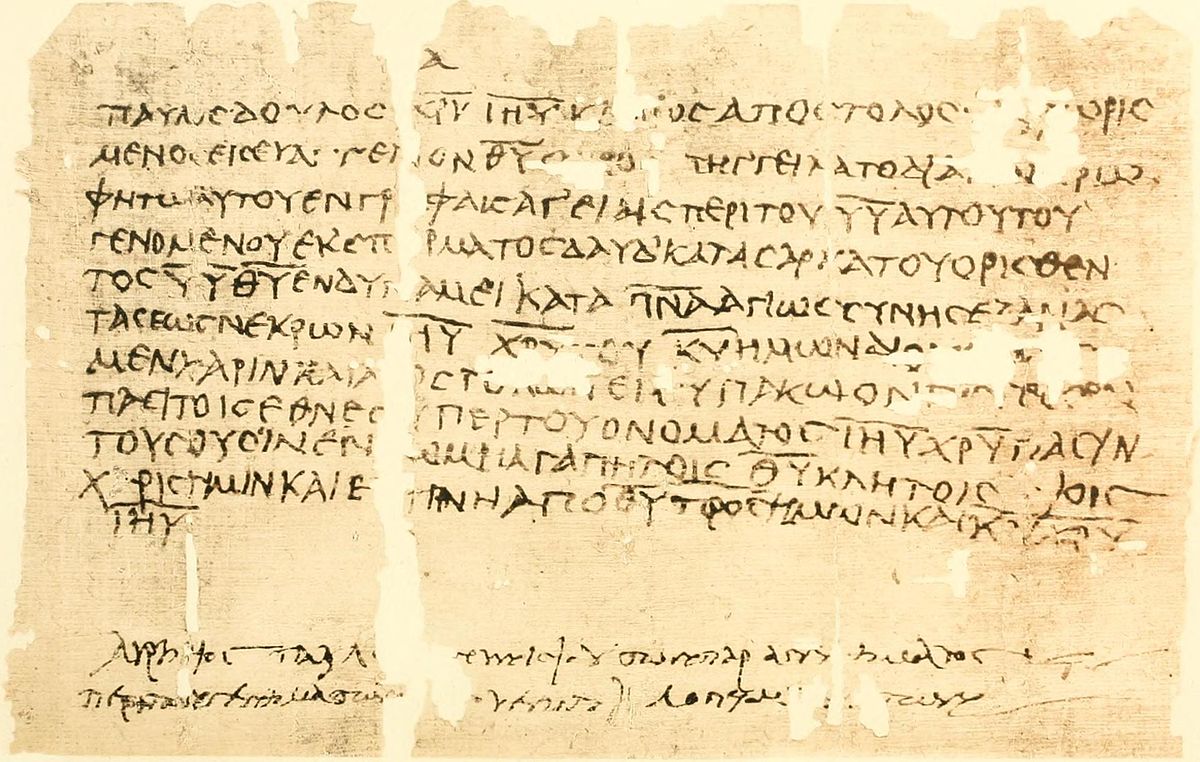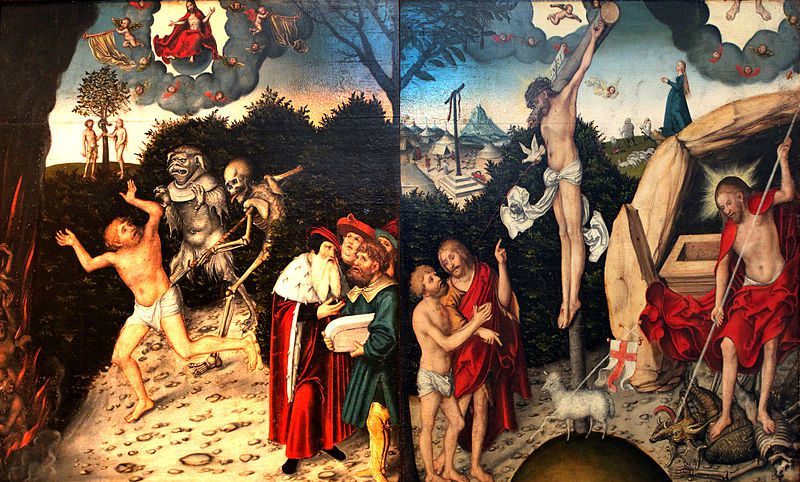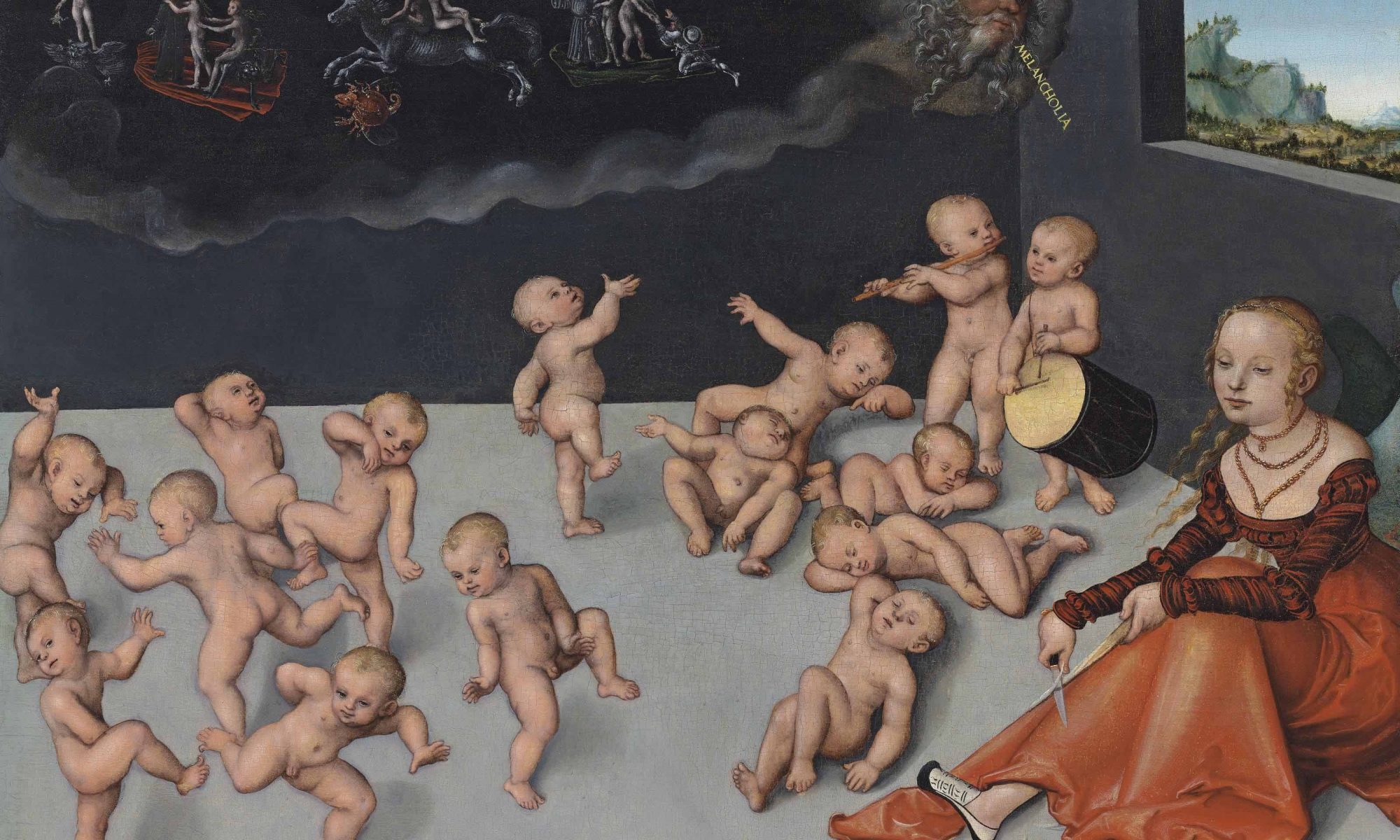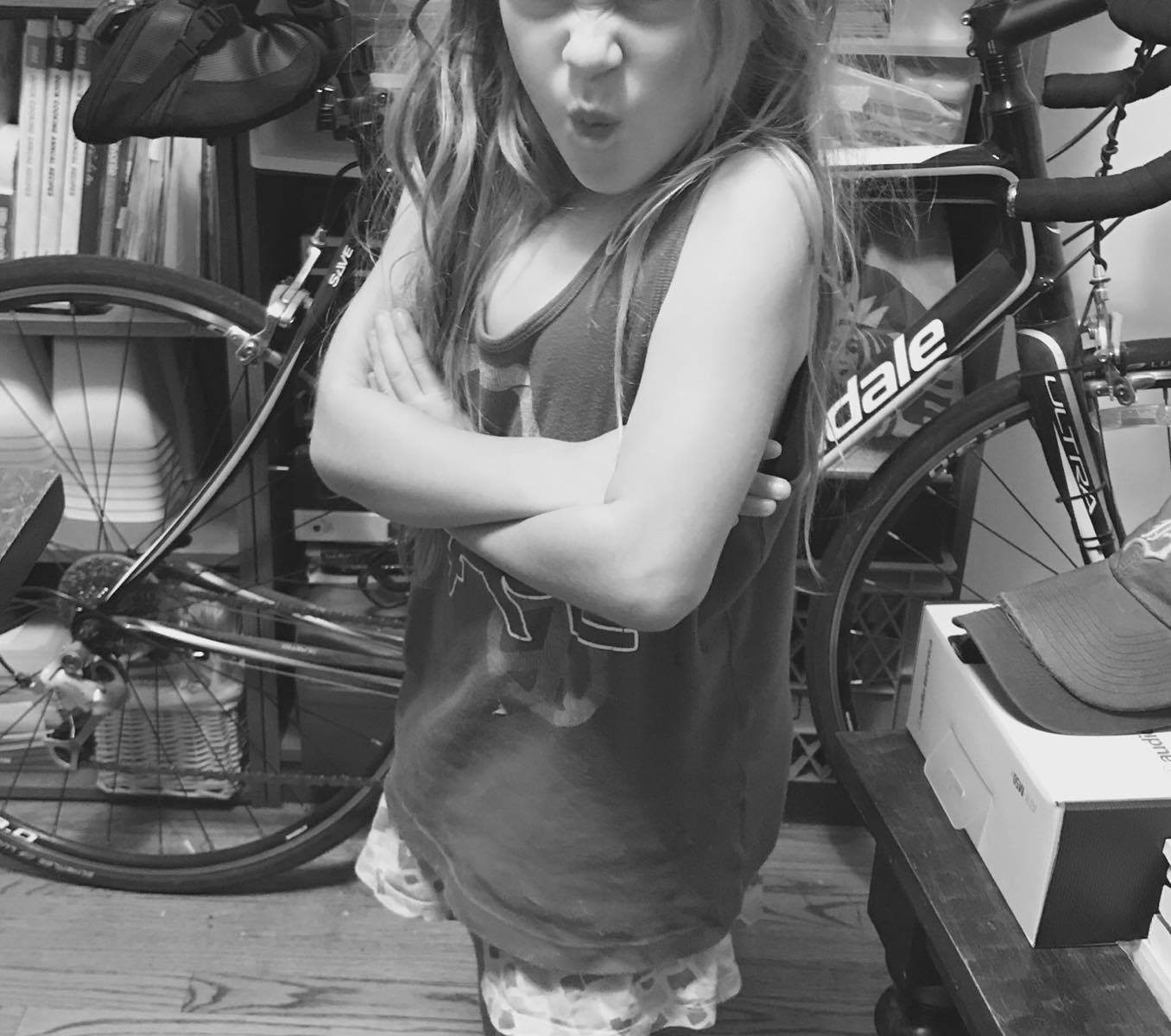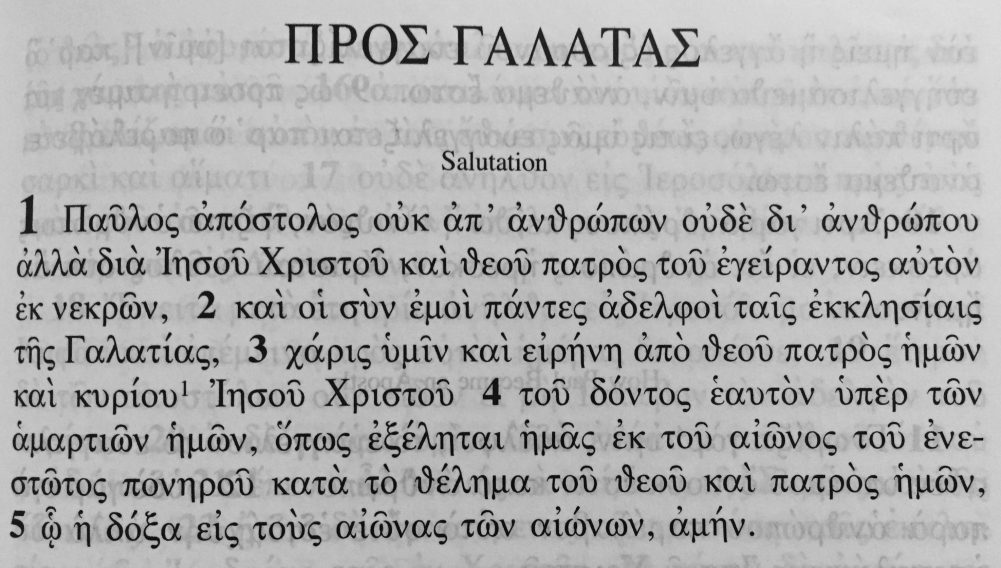Paul is clearly the author, placing his name first, as was the ancient custom. Paul is a servant of Christ Jesus, having been called by God to proclaim Christ Jesus by proclaiming his gospel. Christ Jesus and his gospel are not mere occasional themes in Scripture, but, rather, all of Scripture is centered in Christ and God’s promises concerning him. Continue reading “Romans 1:1-7”
What You’ve Gotta Do to Get Saved: A Simple Guide
What’s It Gonna Take to Make You Happy?
I spent a lot of time working in restaurants before I went to seminary. I liked it, too, for the most part. There was one time, though, that really got under my skin. I was in college, nearing the end. There was a guy who used to come in where I worked almost every day when I was there. He was almost always unbearable. Morning after morning it was the same routine. He’d come in, berate one of the girls working up front (high school girls on the weekend, most working their first job), and complain no matter how quickly he was served. One day I lost it. Continue reading “What’s It Gonna Take to Make You Happy?”
Melancholy and Angst
Luther talked about Anfechtung. Kierkegaard talked about Angest. All manner of philosophers and theologians have put it in different ways. Ultimately, though, what they are driving at is something similar: life in a fallen world isn’t easy, and it plays with your psyche, your nerves, your gut. Anxiety is a terrible thing. It can shut a person down. It can overwhelm them. It can take captive an otherwise wonderful mind. It can cripple a body. Melancholy can do the same. Continue reading “Melancholy and Angst”
A Confessing Church
We mentioned Wade’s piece on a Confessing Church on our last episode. It came out at 1517. the Legacy Project today. You can find it at the link below. You can find the episode at https://www.letthebirdfly.com/2017/08/05/episode-19-confessing-church/
https://www.1517legacy.com/wadejohnston/2017/08/a-confessing-church/
A Jesus for the Anxious
August is always a stressful month for me now. It’s not August now, but the second half of July is usually even worse, because, well, I’m a worrier. I look to the future and concoct a virtual Choose Your Own Adventure book of possibilities, and guess what I gravitate toward, the happy or unhappy endings? Continue reading “A Jesus for the Anxious”
I’ve Had Enough! More than Enough!
I miss living in rental properties and a parsonage. I miss, when something breaks, calling a landlord or a trustee and knowing someone who knows how to do something will do something and that will be it. I miss not fretting about how much repairs cost and how long I have until the next whatever gives out or needs to get done. Now that I am a homeowner, though, that’s a past luxury. I am an adult. I bought some property. We have responsibilities. At the moment, those responsibilities involve a leaking roof and window, a dead appliance, and some other fun. Ugh.
I am blessed, though, and entirely ungrateful too often. I’ve had enough. I have enough. I’ve had and have more than enough. When I forget that what I have is a gift (even if I’ve worked for it through a God-given job), that’s when the problem arises. I won’t go on some motherly Spiel from my childhood about kids in China or wherever kids are from now when parents want their children to eat their food (although it’s certainly true that people would love to have my very first-world problems), but what I do want to hit on is that Christianity frees us from an inward-turned, entitled, naïve, disordered, and work-based view of life and what we have in it. Our sinful flesh would have us live within ourselves, and nothing good dwells in us, at least not by nature, according to our flesh. Jesus Christ frees us to live outside of ourselves, from His gracious hand, by His mercy and providence.
When we lose something we’ve enjoyed, how do we grieve? Do we throw a tantrum like a toddler, shake a fist, or pout? Or do we give thanks for the time we had with a good gift from a good Giver, whether that gift was a thing, a creature, or a family member? Most likely, even for devout Christians, we find ourselves somewhere between the two, sinner-saints that we are.
Ultimately, however, we’ve had and have enough. We’ve had and have more than enough. We are baptized children of God. We are objects of grace. We live in a world given back to us, full of gifts. We are Christians, the people of Christ, who gave Himself for us. We have more than any temporal home, more than any material food, more than here-and-now hopes, more than any identity crafted by ourselves or society. There’s a freedom in that. There’s a freedom to delight, to enjoy. Life is more than “What’s going wrong next?” Life is “I’m right with God whatever goes wrong.”
I’d say I have to work on living that way more, but it’s not something for me to work on; it’s rooted in the works of Christ for me. It’s something to be received. It’s God’s gift to me, in the gospel, which comes peppered with first article things in which before I sought what they cannot give and now can find the hand of the very God who stretched out His hands in death to give me life, of course, eternally in heaven, but also here and now, and not just life, but enough, in fact, more than enough. Have enough. Have more than enough. Let the bird fly!
Galatians 3:21-22
Law and gospel are two different words. They bring different news. This is for sure. Paul notes, however, that this does not make them incongruous or contrary. They have a chronological and logical relationship to each other in the lives of believers. They each serve a purpose. One diagnoses, the other heals. One exposes, the other absolves. One speaks wrath, the other consolation. Importantly, none of this is an abstraction. It happens concretely in the life of the believer. The law sets forth the sad reality and consequences of sin. The gospel forgives sin. And because this side of the casket we remain sinner-saints, both words remain necessary for the Christian. The baptized in their weakness daily sin and their sins are daily drowned. Continue reading “Galatians 3:21-22”
Galatians 3:19-20
The law is God’s will. It is unchangeable. It is good. And yet, as sinners, our relationship to it this side of heaven is forever tied to our fall, to our sinful nature, to our transgressions. While the law was written on human hearts, it was written on stone as well to curb sin, to accuse and threaten, to show sinners’ need for a substitute. Continue reading “Galatians 3:19-20”
Galatians 3:15-18
God wants us to take Him at His Word. He wants us to hold Him to His promises. As sure as Jesus hung on the cross, so surely God means what He’s said in the Scriptures. And yet, as fallen human beings, trust doesn’t come easy for us. We’re used to people breaking promises. We realize not everyone and everything deserves our confidence, let alone the benefit of the doubt. Continue reading “Galatians 3:15-18”

